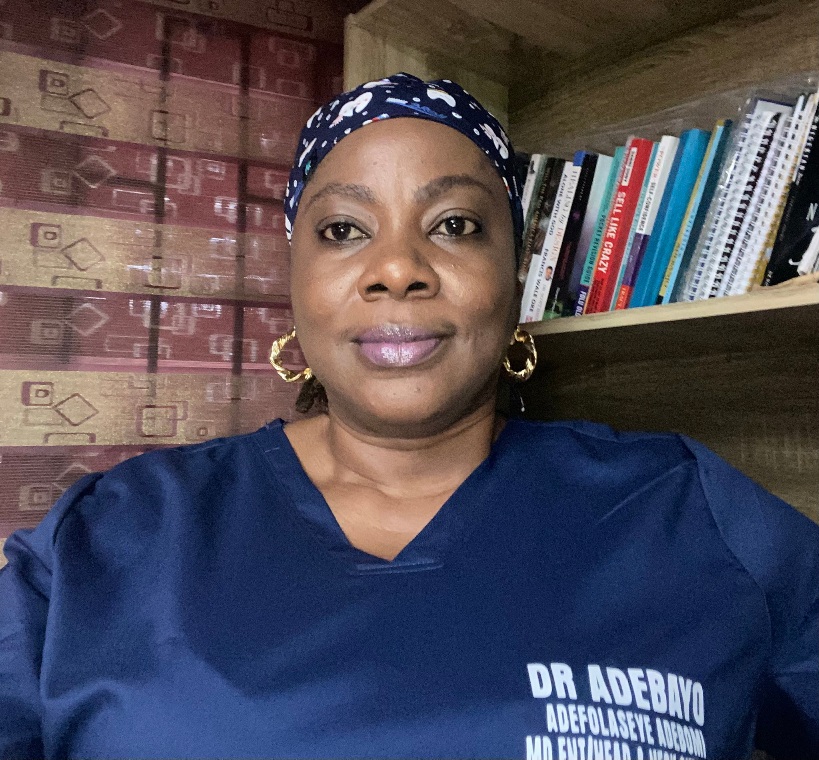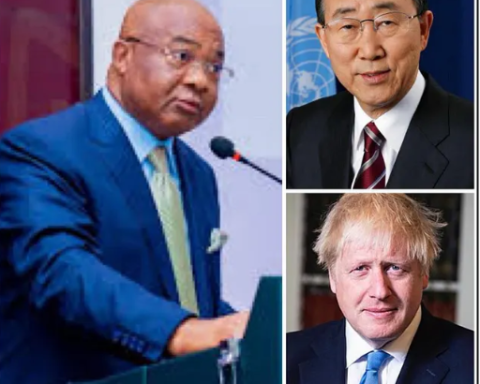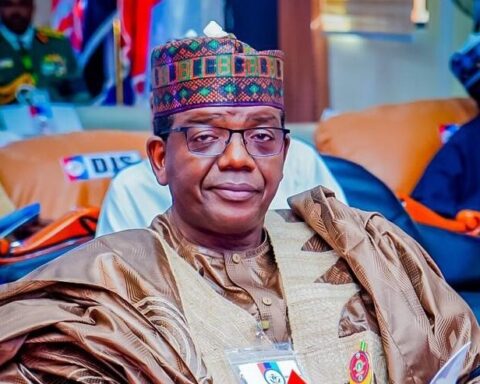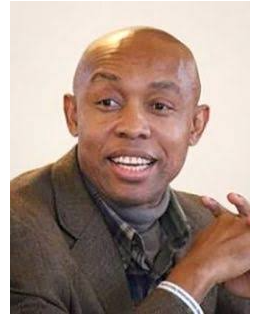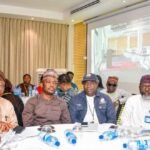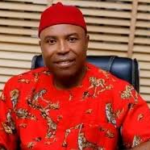By Pat Stevens
Fresh controversy has erupted over the ongoing trial of detained IPOB leader, Nnamdi Kanu, following an open letter written by a senior medical practitioner, Dr. Adefolaseye Adebomi Adebayo, questioning the Nigerian Medical Association’s (NMA) alleged involvement in declaring Kanu fit to stand trial.
In the strongly worded letter addressed to Prof. Bala Mohammed Audu, the NMA National President, Adebayo, an ENT/Head and Neck Surgeon and Fellow of the West African College of Surgeons, said she was “deeply concerned” by media reports suggesting that the Association had certified Kanu medically fit for trial and described his condition as “not life-threatening.”
“I write to you as a concerned and committed member of our great Association,” she stated. “Recent reports in the national media have attributed to the NMA the declaration that Mr. Nnamdi Kanu, currently standing trial in Abuja, has been found fit to stand trial and that his illness is not life-threatening.”
Adebayo noted that while it is within judicial practice for courts to seek professional medical input on an accused person’s condition, she was unaware of any constitutional or statutory provision granting the NMA as a corporate body the authority to issue such declarations.
“To the best of my knowledge, and according to the NMA Constitution and By-Laws available to members, our Association’s functions are primarily professional, ethical, and advocacy-based,” she wrote. “Nowhere, as far as I can ascertain, is there any provision empowering the Association itself, as opposed to independent medical experts or panels appointed by the court, to declare a defendant fit or unfit to stand trial.”
The physician further explained the proper medico-legal process for assessing an accused person’s fitness for trial, which, according to her, involves a medical board or qualified forensic experts appointed directly by the court.
“Traditionally, and in line with standard medico-legal practice,” she said, “the process has always been that the court appoints medical experts, often forensic psychiatrists or a multidisciplinary medical board, to assess the individual’s physical and mental condition. The panel reports to the court, which then makes the legal determination of fitness to stand trial.”
She added that while the NMA might serve as an administrative channel for nominating experts, it should never be seen as issuing a formal medical verdict in its institutional capacity.
“If the Association is merely acting as a conduit to nominate experts,” she wrote, “it should be clearly stated that the declaration emanates from individual medical practitioners and not the NMA itself.”
Adebayo asked the NMA leadership to clarify whether the medical assessment of Kanu was conducted by a court-appointed panel operating through the Association or whether the NMA independently made the public declaration.
“Under what article or section of the NMA Constitution or By-Laws does the Association have the authority to constitute or endorse a medical panel for determining a person’s fitness to stand trial?” she said. “If the latter, how does this align with the professional and ethical boundaries of our Association as defined by its constitution?”
She warned that failing to draw a clear distinction could “blur the ethical line between medical professionalism and institutional advocacy,” potentially undermining public trust in the Association.
“Clarity on this matter is necessary not only to uphold the integrity and independence of our profession,” she added, “but also to ensure that the public correctly understands the role of the NMA in sensitive medico-legal proceedings.”
Adebayo concluded the letter by urging the NMA Secretariat to issue an official clarification “citing the specific constitutional or statutory framework that underpinned the Association’s involvement in this particular case.”
As Kanu’s trial continues in Abuja, the letter has stirred fresh debate over the intersection of medical ethics, judicial procedures, and political sensitivities surrounding the separatist leader’s prolonged detention.
Observers say the NMA’s response, when issued, may have far-reaching implications for how professional bodies are perceived in politically charged legal proceedings.
